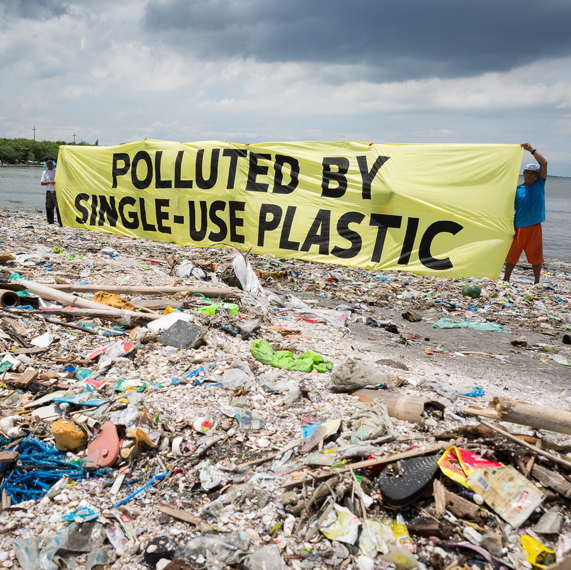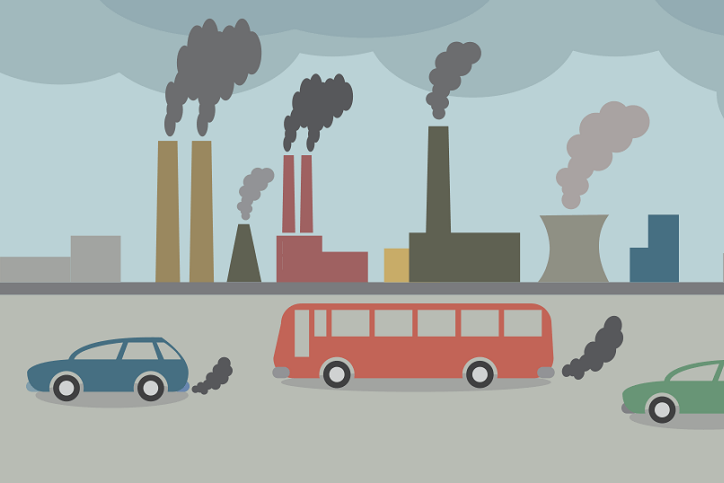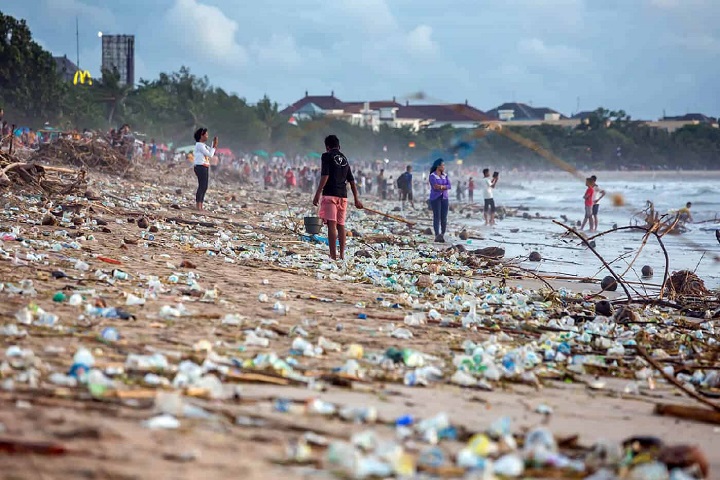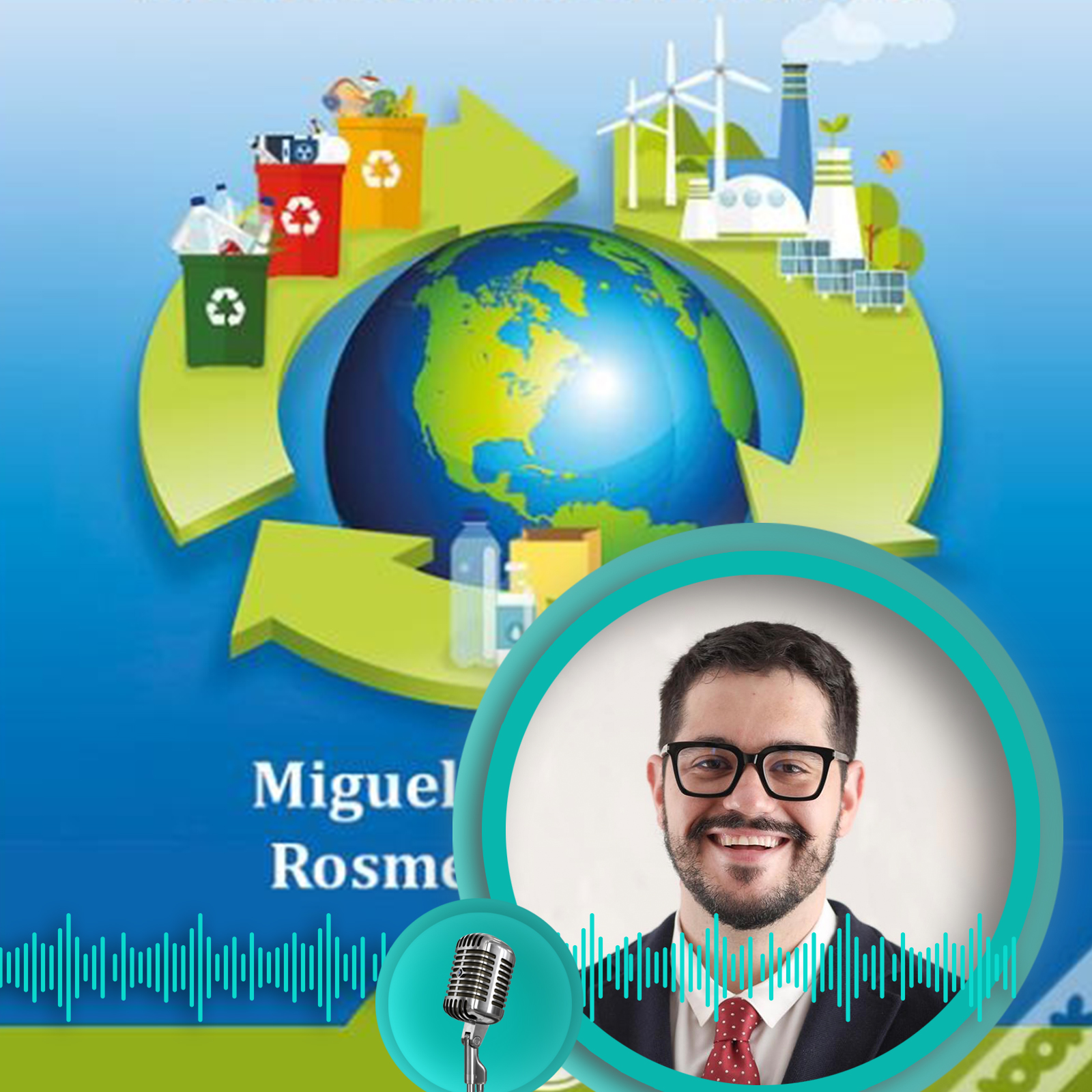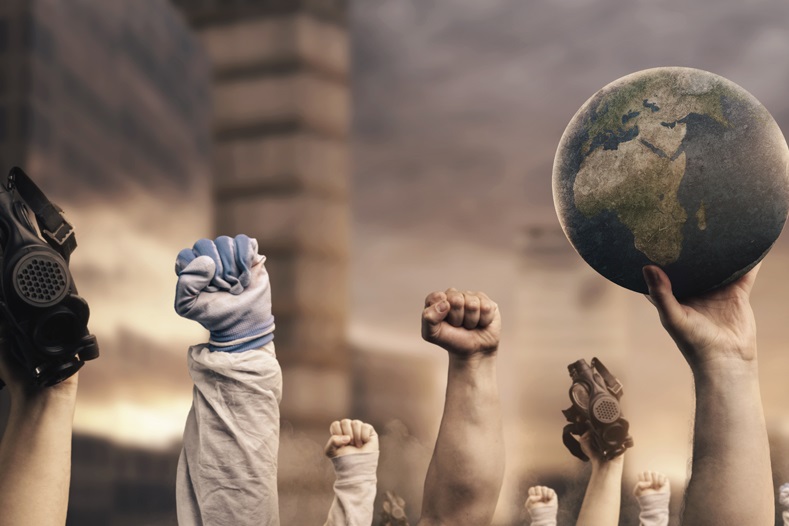- Elephants, Giant Harmless Animals
- Beloved Dogs; Man’s Best Life Companions
- Protecting Vultures from Extinction
- Rhinos; Endangered Species Need Help
- Let’s Enjoy Both Environment and Tourism
- Human Rights and Healthy Environment; Is It Happening?
- Acidification, Plastic Pollution and Death are Our Gifts to Marine Life
- Elephants; Colossal Animals Need to Be Saved
- Why Should We Appreciate Bats?
- Earth Day; A Day To Imagine The Future Of Humans And Species
- How to Protect Frogs from Extinction
- Empty Plates in the future due to tuna extinction
- We should save insects ‘for our own sake’
- World Migratory Bird Day; Time To Stop Feeding Birds Plastic
- Protecting Endangered Species From Extinction
- Habitat Loss Means No Flower, No Bee, No Food And No future
- Biological Diversity Is Vital For Our Survival
- Sea Turtles Are Becoming Extinct; Believe It Or Not
- World Giraffe Day; everyone needs to Stand Tall to Save giraffes
- Tropical Rainforests Harbor Our Planet’s Biodiversity
- Sharks; Impressive Predators on the Brink of Extinction
- Are Snakes as Evil as We Think?
- Fight for Tigers before They Extinct Forever
- Reduce Your Stress by Owning a Cat
- A Day to Venerate the King of the Jungle
- Let’s Save the Honey Bees from Pesticides
- Orangutan; ‘the Man of the Jungle’ Needs to Be Saved
- Appreciate Dogs by Adopting Them
- World Animal Day; an occasion to Honor Animal Rights
- The Role of Humans in Habitat loss and Destruction
- Why we should love octopuses?
- How to Help Our Feathered Friends Complete Their Journey Safely?
- Sloth Day; a Day to Admire One of the Cutest Animal
- What Is an Ecosystem? Components and Its Definition
- Ecological Habitat and Niche; what’s The Difference?
- Environmental Consequences of Fishing Practices
- Ocean Acidification; Negative impacts on Marine life
- Why are Wetlands Important?
- What Are the Main Types of Habitat Loss?
- Flying into Danger
- Nature’s Blueprint
- Covid-19 – a blessing for pangolins?
- Human rights must be at heart of new biodiversity framework, experts say
- Four ways to tackle the climate and biodiversity crises simultaneously
- More trees means healthier bees, new study on air pollution reveals
- To block pandemics, keep ecosystems healthy
- World Wildlife Day 2022
- Bioethics as a tool for social and environmental challenges
- Experts in Marine and Coastal Systems Predict Top 15 Emerging Impacts on Ocean Biodiversity Over Next Decade
- New study finds global forest area per capita has decreased by over 60%
- Up to 90% of marine species could be at high or critical risk if greenhouse gas emissions continue as-is: Study
- Why Migratory Birds?
- Why some people are mosquito magnets
- Protect your skin, don’t stress corals
- Rebirth of Water Birds
- Healing Waters
- Planting Roots of Change: Students' Experience in La Sierra Calderona, Spain
- Extinction risk to southern resident orcas accelerating as researchers raise alarm
- Biodiversity is key to the mental health benefits of nature, new study finds
- To Avert a Mass Extinction, Protect 1 Percent of Earth
- Baobab trees all come from Madagascar – new study reveals that their seeds and seedlings floated to mainland Africa and all the way to Australia
- Oceans without sharks would be far less healthy, says new research
- Let the Music Play - A Summer of Environmental Performances in New York
- Alliances against climate change
- Americans love nature but don’t feel empowered to protect it, new research shows
- Scientists discover how starfish get 'legless'
- Elephants use the tips of their trunks to grasp things with great precision – how this can help robotic design
- Protecting just 0.7% of world's land could help save a third of unique and endangered species
- Five surprising ways that trees help prevent flooding
- Wild animals can experience trauma and adversity too − as ecologists, we came up with an index to track how it affects them
- Commercial whaling and climate change are inhibiting evolutionary change in Arctic whales
- test
- The Security of Energy, The Future of Environment
- Protecting Ozone; Saving human Life, Respecting Planet
- Wetlands; The Earth’s Kidneys
- Water; Absolutely Essential Element for Our Planet
- Some Must-know Things About Greta Thunberg
- The Cradle of School Strike
- CLIMATE CHANGE AND MENTAL HEALTH: LESSONS FOR NIGERIA
- Unprecedented Global Strike; A New Epidemic Movement
- World Environment Day; How to Beat Air Pollution?
- Let’s Grow our Future by Fighting Drought and Desertification
- May 24th school strike in Uganda
- Violence, Environment, and the Nigerian Question
- Climate Change: A Walk Through the Sahel
- WE ARE IN CRISIS; MESSAGE FROM UGANDA'S STUDENTS
- What would Brexit mean for the UK environment?
- Role of Education for Mitigation and Adaptation to Climate Change
- Documents show UK government exceeding EU environmental limits
- After 32 Years, Protecting the Ozone Layer Is Still a Top Priority
- Is Brexit Creating A New Toxic Air-Zone?
- Is There Any Relationship Between ‘Eco-Anxiety’ And Climate Change?
- Greenland's Massive Ice Melting and Its Consequences
- How Human Rights Are Related to the Environment?
- Overpopulation; the Biggest Challenge Facing Our Planet
- Climate Change: Artistes Can Save the World
- Nuclear explained
- Analyzing the Impacts of Climate Change on Environmental Migration
- What is a carbon footprint?
- New geochemical tool reveals origin of Earth's nitrogen.
- New Trump Nuclear Plan Favors Uranium Mining Bordering the Grand Canyon
- COVID-19 is a dress rehearsal for entrepreneurial approaches to climate change
- One billion people will live in insufferable heat within 50 years
- Project seeks 4D view of Earth's mantle
- Climate change: Scientists fear car surge will see CO2 rebound
- Climate change increases migration at the expense of the poor
- For indigenous protesters, defending the environment can be fatal
- Why 'I can't breathe' is resonating with environmental justice activists
- Why Is the South Pole Warming So Quickly? It’s Complicated
- Climate Change: What does Islam say about climate change and climate action?
- Turning to faiths to save the planet. How religions shape environmental movement in Indonesia
- Eight Climate Change Themed Digital Art Shows for the Very First International Day of Clean Air for Blue Skies Day
- PREDICTING THE FUTURE OF PLASTIC POLLUTION AND WHY CLEANUP IS PART OF THE SOLUTION
- Acknowledging the True Cost of Climate Change on World Patient Safety Day
- Why don’t we treat the climate crisis with the same urgency as coronavirus?
- Recycling still the most effective waste disposal method, report finds
- How our warmer oceans are contributing to climate breakdown
- Venus was once Earth-like, but climate change made it uninhabitable
- The world is on track to warm by 3 degrees Celsius
- Human-Made Stuff Now Outweighs All Life on Earth
- One Year After Declaring Climate Emergency, Scientists Push for 'Massive-Scale Mobilization'
- Warming already baked in will blow past climate goals, study finds
- Globalization: The Problem or Part of the Solution
- CAS2021 - The First Global Climate Action Summit for a Recovery From Covid-19
- Globalization: The Problem or Part of the Solution (2)
- A new challenge COVID-19 : Stay safe and protect the environment
- Female Scientists at the forefront of the fight against COVID-19
- Environmental Education Symposium on UN’s SDGs
- The disposable mask: towards a new ecological disaster?
- Increased Medical Waste in the Times of Corona
- New versions of pollution
- Twelve Digital Art Shows for a Sustainable Green Recovery
- Personal Protective Equipment (PPE) and Tired Earth's #Maskuary Campaign
- Celebrating World Wildlife & Forest Days
- Pfizer: The bright and the dark side
- International study: Humans accelerate the change of biodiversity
- What on Earth is COP26?
- Will the top CO2 emitters change their ways? And if not, who is going to save the day?
- Carbon’s Impact on the Largest Desert of the World
- Biden brings new momentum to global climate change agenda
- Who is CO2zilla, and what can I do to stop it? What should I do?
- E-bikes are good for the environment and for you too
- What is ‘degrowth’ and how can it fight climate change?
- Celebrating World Water Week with Sustainable Development Goals
- Science Art and Justice in The Time of Corona
- A JOINT MESSAGE FOR THE PROTECTION OF CREATION
- #UrbanOctober
- Reducing emissions - benefits for both the environment and business
- About COP26: Who wants to change key climate reports by lobbying?
- The leading young environmental activists and social media
- Science Based Green Recovery at the COP26
- Hydrogen for a stronger economy and cleaner environment
- How to really reduce the co2 emissions of the atmosphere?
- Empathy and the environment
- The Earth Strikes Back
- Plan E: A climate-centred security strategy?
- It is time for the local to determine the Global
- Cryptocurrency mining has a huge carbon footprint. Here’s what experts think we should do about it.
- Postpone the SDGs?
- How Climate Change Will Affect Plants
- Corals doomed even if global climate goals met: study
- Forests are key in tackling climate crisis
- The climate crisis is unfair
- Stockholm+50
- Limiting global warming to 1.5 degrees Celsius would reduce risks to humans by up to 85%
- Up to Their Necks in Water: Asian Island Countries Facing the Problem of Climate Change
- As Boris exits stage left, climate skeptics fight for the top U.K. job
- Justice in The Age of Climate Change
- The radicals of Just Stop Oil ?
- Historical construction of climate justice
- In COP27? Let us reflect on the causes of climate change
- Developing Countries Secure New Fund at The COP27
- Climate Action and concepts necessary for its understanding
- The climate crisis: A threat to human rights
- Humans, Science and Nature: 12 quotes for 12 months for 2023 on climate change
- Climate justice, a paradigm for protecting the planet
- Climate Colonialism: The New Face of Power Abuse
- The Fossil Fuel-Based Growth Model: An Obsolete Economic Relic
- Burning Roses & Reefs Art Shows at the London Climate Action Week
- Overpopulation Theories: A Threat to Human Rights?
- Climate Racism: Social Inequalities in the Age of Climate Change
- UNESCO Piraeus and Islands Tells the Story of Climate Change with Impact
- Carbon Footprint and Climate Shadow: A Holistic Perspective to Face the Climate Crisis
- Strategies for Mobilising Individuals in the Fight Against Climate Change
- Creating Resilient and Sustainable Technologies – COP28 UAE TechSprint
- Climate Change vs. Heart and Lung Health: The Causes and Effects (Part 1)
- Eco-Demagogy: Unmasking Green Hypocrisy
- Tackling the Impact of Climate Change for All at COP28
- Maghreb farmers embrace drones to fight climate change
- Climate Resilience in Ancient Architecture: Lessons for Modern Design
- Don’t Let Climate Change Interrupt the Opera
- “Group of Friends of Culture-Based Climate Action” Launched at COP 28
- The Carbon Cost of Smartphones
- The Historic and Enigmatic COP 28
- Climate change vs. heart and lung health: the solutions (Part 2)
- From Oil to Renewables: The UAE's Green Energy Transition
- Meet the Desert
- How to make your life greener in 2024
- Empowering Young Minds: Students as Agents of Change in Climate Education
- Unveiling Climate Colonialism
- World’s Temperature Reaches 1.52°C
- Contemporary Art and Environment
- Combustion engine ban least popular climate policy in Germany, France, Poland, survey shows
- Carbon markets
- Climate emissions from air travel 50 per cent higher than reported
- Slap in the Face of the Planet Back in the Day
- Saturated soils could impact survival of young trees planted to address climate change
- The Disappearance of Venezuela's Humboldt Glacier: A Mirror of Global Climate Change
- GLOBAL INITIATIVES: International School of Nice Student Champion DEIB Principles and Ocean Advocacy Ahead of UN Ocean Conference 2025
- Cape Verde bearing the brunt of the effects of climate change
- Unfulfilled Promises
- Debunking eight common myths about climate change
- International School of Nice (ISN) Joins Forces with Nice Climate Summit 2024
- How climate change is shaping the UK election landscape
- Emissions increase as climate disaster intensifies
- Climate change is linked to a global surge in dengue cases including in Americas, Europe
- Humanity: development, an uncertain future and opportunities for change
- UN climate fund axes Nicaragua forest project over human rights concerns
- The Cost Of Climate Change Has Arrived At Our Doorsteps
- Climate Change Drives Species Relocation, Challenging Policy-Makers
- In French snap elections, parties are overlooking the climate change nightmare
- Extreme heat waves broiling the planet in 2024 aren’t normal: How climate change is heating up weather around the world
- How cities can use AI to adapt to climate change
- Ingredients in peril due to climate change
- The Olympics are part of a push to “green” sports. Here’s why that’s important
- Alliances against climate change
- ‘Humanity is failing’: official report warns our chance to save the Great Barrier Reef is fast closing
- Environmental Education: An Essential Requirement for a Sustainable Future
- Transport choices can make a significant difference for climate change, researchers find
- EPA Releases Clean Air Progress Report Ahead of World Clean Air Days
- Climate Denial in American Politics: #ClimateBrawl
- What Is the White Gold of the Fourth Industrial Revolution?
- Where Are the Main Lithium Deposits in The World?
- The Oil of The 21st Century: Extraction and Refining
- Lithium: Global Projects and Policies of Economic Powers
- A Lithium Almost "Made in France"?
- France: In Search of the Lithium
- EPA Releases Hudson River & Chesapeake Bay Progress Reports
- Lithium in France: Future Opportunities and Challenges
- Celebrating The 50th Year of IMO Treaty with CWNYC Art Shows
- Lithium-ion battery fires are a growing public safety concern − here’s how to reduce the risk
- Celebrating World Tourism Day with CWNYC Art Videos & Short Films
- Big lithium plans for Imperial Valley, one of California's poorest regions, raise a bigger question: Who should benefit?
- ISN Receives "Engaged for Ocean" Label at the 2024 Nice Climate Summit
- The Essential Role of Incentives and Taxes in Climate Action
- Lithium – green saviour or villain?
- How climate change impacts affect renewable energy
- Donald Trump’s Environmental Record: A Comprehensive Analysis
- Climate Anxiety: The New Malady Affecting Populations
- World Science Day for Peace and Development: Science at the Crossroads of Environmental Sustainability
- Journée mondiale de la science au service de la paix et du développement : la science à la croisée de la durabilité environnementale
- Eradicating Slavery; Stop Child Labour
- Nice Tips to Handle Natural Disaster Properly
- Mountain; Majestic, Towering and Sacred Phenomenon
- Australia Bushfires and Its Devastating Impact on Wildlife
- Environmental Consequences of Australia’s Fires
- Polar bears are getting thinner and having fewer cubs. Melting sea ice is to blame
- Chernobyl – the world’s worst nuclear disaster revisited
- Socio-economic, environmental impacts of COVID-19 quantified
- Human activity influencing global rainfall, study finds
- U.S. Forces Are Leaving a Toxic Environmental Legacy in Afghanistan
- 'Financing our own extinction': $1.8tr in subsidies funding nature destruction every year, global study finds
- Victims of the ecological crisis: climate refugees
- Response to Environmental Damage Hints at Your Empathy Overall
- 2022 Year in Review: 100 million displaced, ‘a record that should never have been set’
- The Orinoco Mining Arc at the Crossroads: Ecocide, Human Rights Violations, and the Urgency of Addressing This Socio-Environmental Conflict
- Far right using climate crisis as bogeyman to frighten voters and build higher walls
- Earth’s Latest ‘Vital Signs’ Show the Planet Is in Crisis
- ‘Stark warning’ as global temperatures hit record levels for 13th month
- Devastation as world’s biggest wetland burns: ‘those that cannot run don’t stand a chance’
- PCBS issues report on Palestinian population on World Population Day
- Virus that causes COVID-19 is widespread in wildlife, scientists find
- Let's Enjoy National Park Week
- Secure Borders or Eradicate Environmental Roots; How to Manage Migrants?
- The Birth of Modern Genetic Modification (1)
- The Birth of Modern Genetic Modification (2)
- The Birth of Modern Genetic Modification (3)
- GMOs; What Are the Reasons of Both Sides?
- A Brief Explanation about GMOs Companies
- Vegetarianism; a Way to Save the Planet
- How Poverty Cause Environmental Degradation?
- The impacts of Brexit on UK’s food and farming
- Save Our Food Production by Conserving the Soil
- Desalination Plants and the Promise of Unlimited Drinking Water
- GMOs - environmental concerns
- Vitamin D levels appear to play role in COVID-19 mortality rates
- Covid-19 vaccines have weakened the anti-GMO movement
- Potato Milk: The Best Plant-Based Dairy Option For The Environment?
- The SDGs against the problem of food waste
- Junk Food and the Brain: How Modern Diets Lacking in Micronutrients May Contribute to Irritability and Anger
- Research shows 'profound' link between dietary choices and brain health
- This World Breastfeeding Week, UNICEF and WHO call for equal access to breastfeeding support
- Human-Tiger; A Mutual Need
- A Day to Respect Cute Cat
- Fresh Air and Healthy Heart; A Gift of Mobility Week
- Tackling open defecation in FCT
- Tobacco Farming and Shocking Environmental Risks
- School Strike, An Opportunity To Stop The Oil Drilling Companies
- Breathing Clean Air; What We Owe Our Kids
- Plastic or The Environment; Which One Do You Choose?
- How does Overpopulation Impact on Our environment?
- 14 Simple Ways To Live More Sustainably And Reduce Plastic Waste
- Walking and Cycling; Two Great Way to Help the Environment
- Car Free Day Is an Opportunity to Combat Pollution
- How Tourism Impacts on the Environment?
- GREEN BIRTHDAY PARTIES
- Health and Environmental Effects of Ozone Layer Depletion
- Contact Lenses; Surprising Source of Pollution
- Acid Rain: Causes, effects and solutions
- Scientists find highest ever level of microplastics on seafloor
- The New Alzheimer’s–Air Pollution Link
- Is The Plastics Crisis Really Affecting Our Fertility?
- 9 Ways to Combat Microplastics at Home
- Air pollution and infertility: the next global crisis?
- 24% Of Chemicals in Plastic May Be Worth Worrying About
- Your bed probably isn’t as clean as you think – a microbiologist explains
- UNEP Says A Global Agreement is Needed to Address PPE
- Time to end the mass killing
- Microplastics and Toxic Chemicals Increasingly Prevalent in World’s Oceans
- World No Tobacco Day 2022
- Plastic pollution in ocean may harbor novel antibiotics
- Pollution linked to 10 per cent of cancer cases in Europe, report finds
- Even low levels of air pollution found to contribute to increased health risk
- World Environment Day: 5th June
- Let’s make a difference
- How Rivers Can Be the Key to Solving Ocean Pollution: New Project Offers Innovative Solution
- The Invisible Assault of Microplastics: A Silent Problem Requiring Urgent Attention
- No more plastic
- The Toxic Legacy of Fukushima: An Imminent Danger to the Global Oceans
- Environmental Pollution From Disposable Vapourisers: An Unnoticed Threat?
- Earth Day with artist Selva Ozelli at Havre de Grace Maritime Museum
- Talking About Earth Day at Havre de Grace Maritime Museum
- Lithium ion batteries a growing source of PFAS pollution, study finds
- Drawing Attention to the Impact of Plastic Waste on Marine Life With Art
- US Plans to Phase Out Single-Use Plastics Across All Federal Operations
- African oceans: the green revolution against the plastic tide
- Microplastics are everywhere, but are they harming us?
- A Beautiful and Healthy World with Indigenous Peoples
- CleanUp Day; A Day to Make Earth for All of US
- Less Paper, Save Forests, Rescue the Environment
- Waste Reduction, Major Step to Heal Environment
- Waste Reduction, Major Step to Heal Environment
- Let’s Celebrate Coastal Cleanup Day by Cleaning the Beaches
- COVID-19 is laying waste to many US recycling programs
- Why is recycling single-use coffee cups so difficult?
- 10% of all greenhouse gas emissions come from food we throw in the bin
- The plastic waste problem explained
- Religions and environmental protection
- Are Pilgrimages Ecological in Islam?
- Elevating Waste Solutions: Biocovers and Black Soldier Fly Technology
- Economics for Disaster Prevention and Preparedness in Europe







